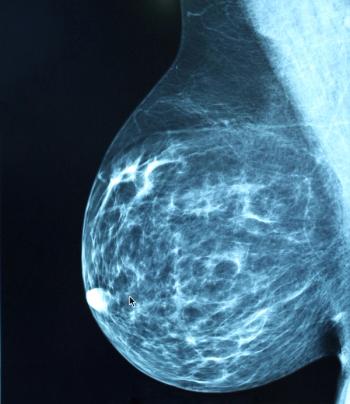
Oncology NEWS International
- Oncology NEWS International Vol 17 No 9
- Volume 17
- Issue 9
New CMS anti-referral rules tighten knot on imaging equipment leasing deals
Following its charge to reduce costly imaging overutilization, the Centers for Medicare and Medicaid Services (CMS) has announced more stringent prohibitions against self-referral practices.
ABSTRACT: CMS rules close self-referral loopholes, ban ‘per click’ lease arrangements.
Following its charge to reduce costly imaging overutilization, the Centers for Medicare and Medicaid Services (CMS) has announced more stringent prohibitions against self-referral practices.
Final Stark rules for the Hospital Inpatient Prospective Payment System for 2009 could force providers to restructure numerous space and equipment leasing arrangements.
Industry sources had anticipated changes to Stark law regulations since CMS invited debate on its 2008 rule. Medicare had then noted that more than 1,000 comments had provided enough input to implement future regulations without further discussion.
The new provisions broaden the definition of designated health services (DHS) “entities” and prohibit “under arrangement” partnerships between hospitals and physician groups and “per-click” arrangements (fees paid to a physician whenever a machine owned by that physician and leased to a hospital is used), for space and equipment leases.
Until now, only those healthcare institutions billing Medicare for DHS had been considered DHS entities under Stark rules. The final IPPS rule has expanded the definition to include any facilities that perform DHS, regardless of whether they bill CMS.
The old Stark rules prohibited physicians from referring patients to any facility in which they had a direct financial interest.
The rules did, however, allow referring physicians to receive indirect compensation from hospitals to which they referred Medicare patients for imaging studies. Physicians benefited if they had a stake in a facility or entity that subcontracted its imaging services to such hospitals. The new Stark rules will make it impossible for referring physicians to enter such an arrangement.
The old rules also allowed for certain percentage-based or per-use payments to physicians for the lease of space and equipment. CMS has come to consider such payments an incentive to refer.
The final Stark rule will no longer permit them. Lease arrangements in which the referring physician or the physician’s practice is either a lessor or lessee are implicated by the new rule.
The final IPPS rules, published in the Aug. 19 issue of the Federal Register, will become effective Oct. 1, 2009.
CMS released a notice proposing changes in the Medicare physician fee schedule for 2009 in July. In an online memorandum, ASCO has summarized the provisions and highlighted the parts of the notice that are most relevant to oncologists.
One of the points that the ASCO memo focuses on are relative value update (RUC) practice expense recommendations. The CMS notice suggests revising the practice RUC codes for chemotherapy administration requiring peritoneocentesis (96440), and chemotherapy administration requiring spinal puncture (96542).
Another issue is a proposal to discontinue special payment for intravenous immune globulin (IVIG). According to the ASCO memo, CMS believes that market conditions for IVIG have improved so that pre-administration services are no longer incurred.
Finally, 2 oncology-related measures from 2008 will not be used in the 2008 Physician Quality Reporting Initiative (PQRI). They are measure 74, which applies to radiotherapy for invasive breast cancer patients who have undergone breast conserving surgery, and measure 103, which is a review of treatment options for patients with localized prostate cancer.
The ASCO memo can be found at
Additional reporting by Shalmali Pal. This article is adapted from ONI’s sister publication Diagnostic Imaging online (August 12, 2008).
Articles in this issue
over 17 years ago
Japanese team discovers more cancer falloutover 17 years ago
Panel pans FDG-PET for new Medicare oncology coverageover 17 years ago
Sen. Kennedy's brain tumor puts spotlight on new treatmentover 17 years ago
Precise resection in colon cancer may boost survivalover 17 years ago
Payer’s budget to get right targeted drug to right patientover 17 years ago
PET brings treatment changes in majority of colon ca casesover 17 years ago
High death rate brings prostate ca vaccine trial to a haltover 17 years ago
Radiofrequency ablation eliminates nondysplastic BEover 17 years ago
Childhood cancer research gets $30 million from fedsNewsletter
Stay up to date on recent advances in the multidisciplinary approach to cancer.



































